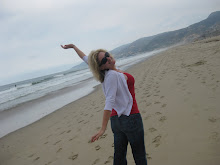Newsom endorses Hillary Clinton. Bill Clinton endorses Newsom. To the surprise of no one, the former President and his ripening, young protégé will take the state’s fundraising season by storm. As the Godfather of political favors makes his way up and down the coast, we cannot help but wonder: what does it all mean?
The
Now 14 months away from electing a new governor, and Newsom pulls out the big guns; all the while Jerry Brown continues a soul-searching courtship dance under the alias of Jerry Brown for Attorney General. Does this mean Newsom will peak too early? Not exactly. According to survey results from the Annenberg Election Study conducted in 2000, endorsements indeed play a salient role in primary contests. This study indicates that in the early months of a primary election, individual endorsements can and do influence voter choice.
But how much influence can a former President have on local voters? The
Since the Democratic field still has yet to be solidified, let us examine the impact of endorsements on the Republican primary races (also not entirely solidified, but further along in gestation than Newsom vs. Brown head-scratcher). Log on to Steve Poizner’s website, and see the whole host of about 100 prominent state leaders in Poizner’s endorsement camp. Meg Whitman takes a different approach, featuring big-ticket Republican presidential nominees John McCain and Mitt Romney on her roster of supporters. While Whitman’s recent dip may have more to do with this week's “playing for field position” in her refusal to debate with fellow Republican primary candidates than it does her endorsement registry, will Poizner’s list of renowned state officials – less “elite” than a Clinton, McCain or Romney – make him the more sustainable candidate?
My guess is no. Big-ticket names get candidates the donations they need in this early primary season. In the midst of a high level of distrust that voters maintain for state officials, it would be hard to believe that State Senators and Assemblymen can improve Poizner’s legitimacy and standing with voters. The

No comments:
Post a Comment